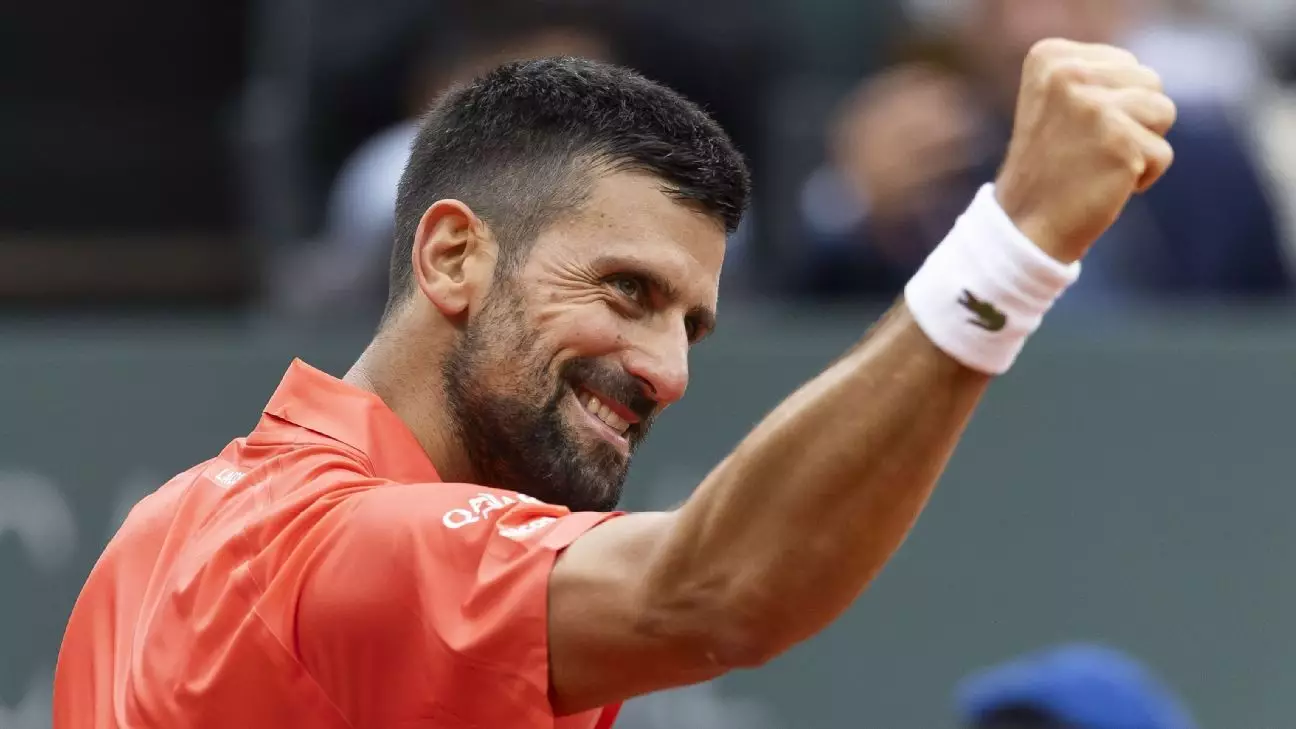After a challenging start to the clay season, Novak Djokovic finally found his footing at the Geneva Open with a decisive victory over Marton Fucsovics. With a scoreline of 6-2, 6-3, Djokovic not only secured his first win on clay this year but also rebounded from two previous losses that had cast a shadow over his performance. The match, played under the sporadic rain typical of this season, showcased his resilience and adaptability, essential qualities for a player of his caliber. Djokovic’s ability to thrive under challenging conditions is a testament to his status as a 24-time Grand Slam champion and one of the most formidable players in tennis history.
Analyzing Djokovic’s Performance
Djokovic’s execution during the match was nearly impeccable. He faced no break-point opportunities from his opponent and delivered an impressive 73% success rate on his first serves. This dominance in service games allowed him to maintain control and dictate the terms of the match. In post-match comments, he highlighted serving as a crucial aspect of his performance, referring to it as “his strongest shot” of the day. The backhand winner that clinched the game on his second match-point was a hallmark of Djokovic’s precision and skill, reinforcing why he is often regarded as one of the best returners and servers in the history of the sport.
A Steep Challenge Ahead
As Djokovic moves forward in the tournament, he faces a daunting quarterfinal against Matteo Arnaldi, who handed him a defeat at the Madrid Masters earlier in the season. This upcoming match serves as both a redemption arc and a pivotal moment in Djokovic’s preparation for the French Open. The mental aspect of this matchup cannot be overlooked; knowing that a recent opponent has already bested him adds a layer of intensity and pressure. Djokovic will need to channel his past experiences and hone his strategies to ensure that this time, he emerges victorious.
The Context of the Geneva Open
The Geneva Open serves as an important warm-up event leading up to the French Open, attracting players keen on fine-tuning their games on clay. The tournament is known for its intimate atmosphere, providing an excellent opportunity for players to gain match practice. Djokovic is not the only player to have experienced early setbacks this season; with top-ranked players like Taylor Fritz also navigating challenges, the competition remains fierce. Fritz, who survived his second-round match against Quentin Halys, symbolizes the unpredictable nature of tennis, especially on clay.
Reflection on Career Milestones
As Djokovic approaches the landmark of 100 ATP career titles, every match carries significant weight, not just for ranking points but for legacy and history. His aspirations for this milestone inject a sense of urgency into his performances. It amplifies the pressure but also encourages him to elevate his game. As he embarks on this part of the season, his experiences—both highs and lows—will undoubtedly contribute to the fabric of his illustrious career. Each victory and defeat serves as a building block toward achieving greatness in the sport that has defined him.

